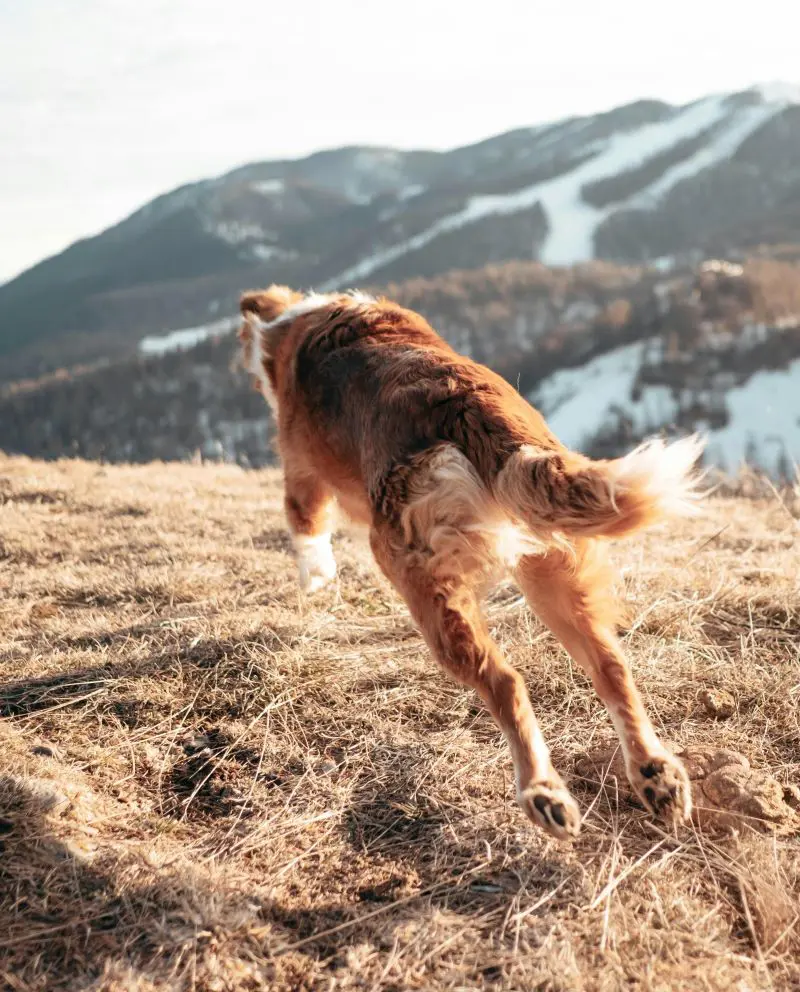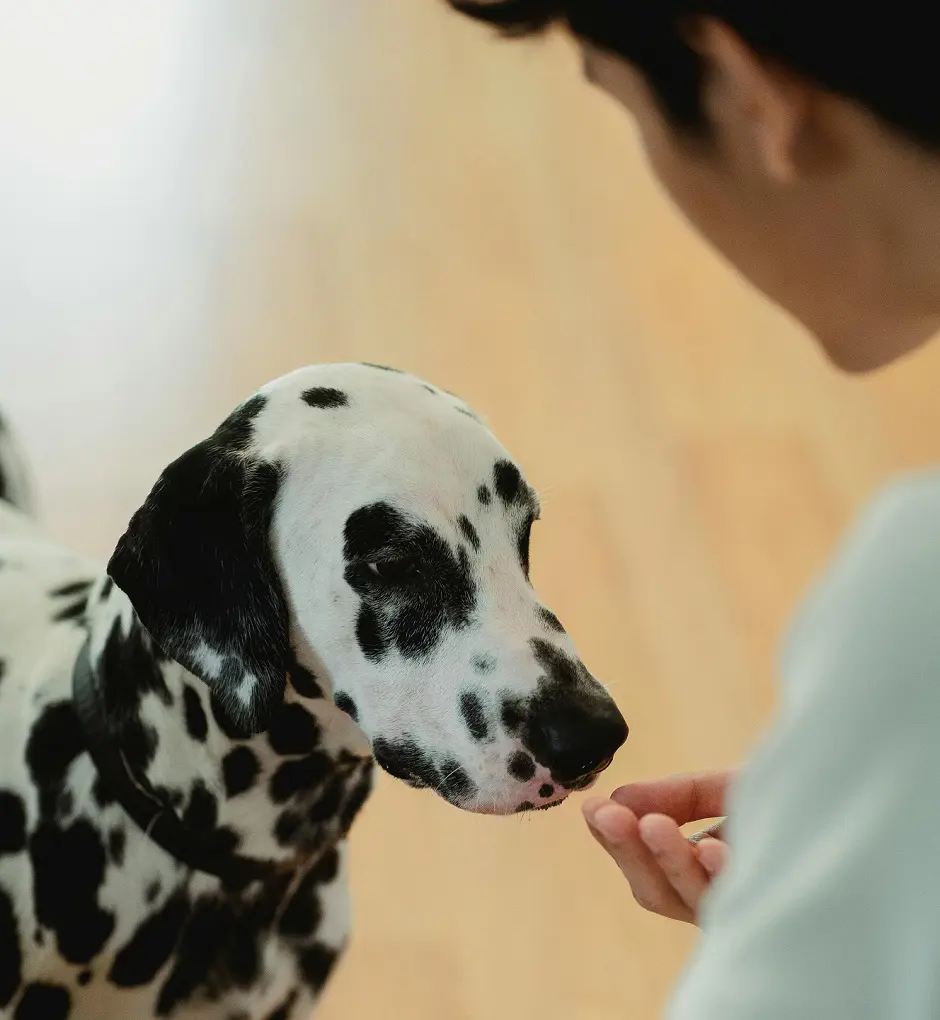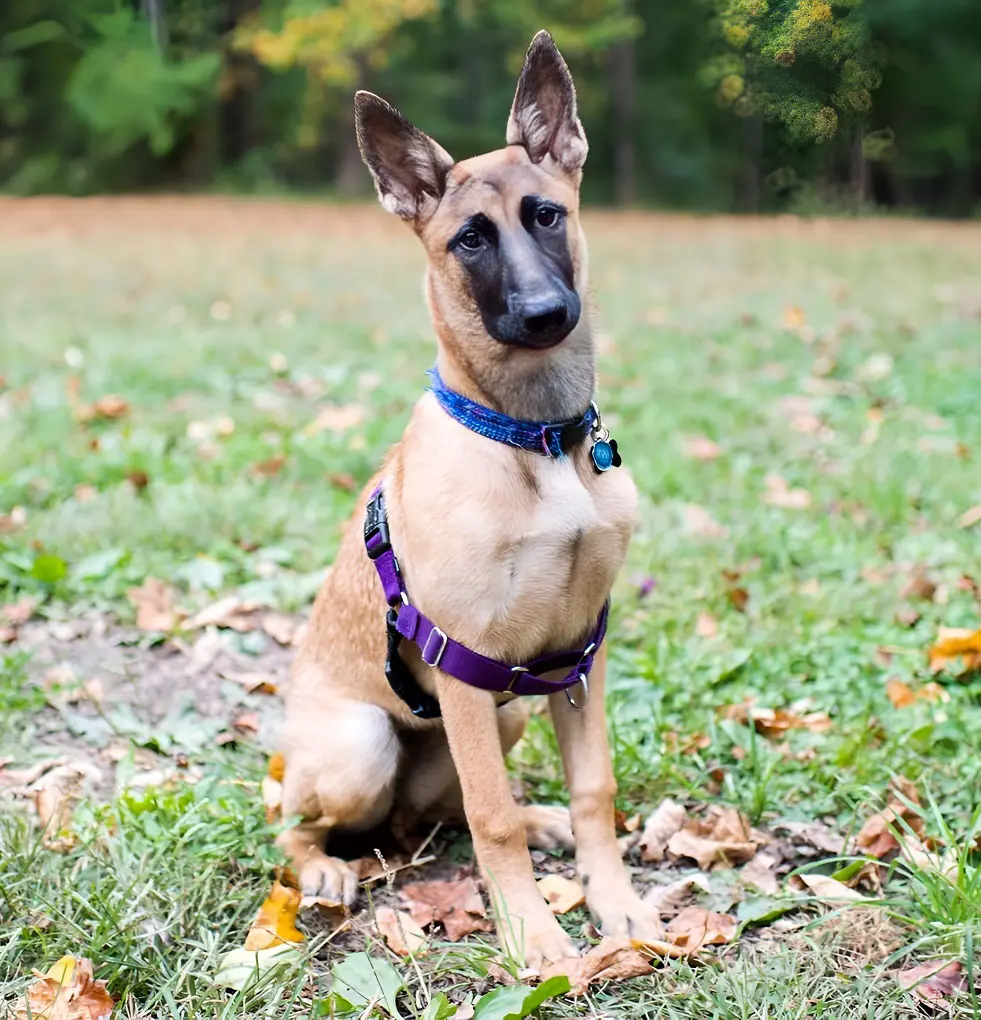17 Ways To Help A Dog With Stuffy Nose
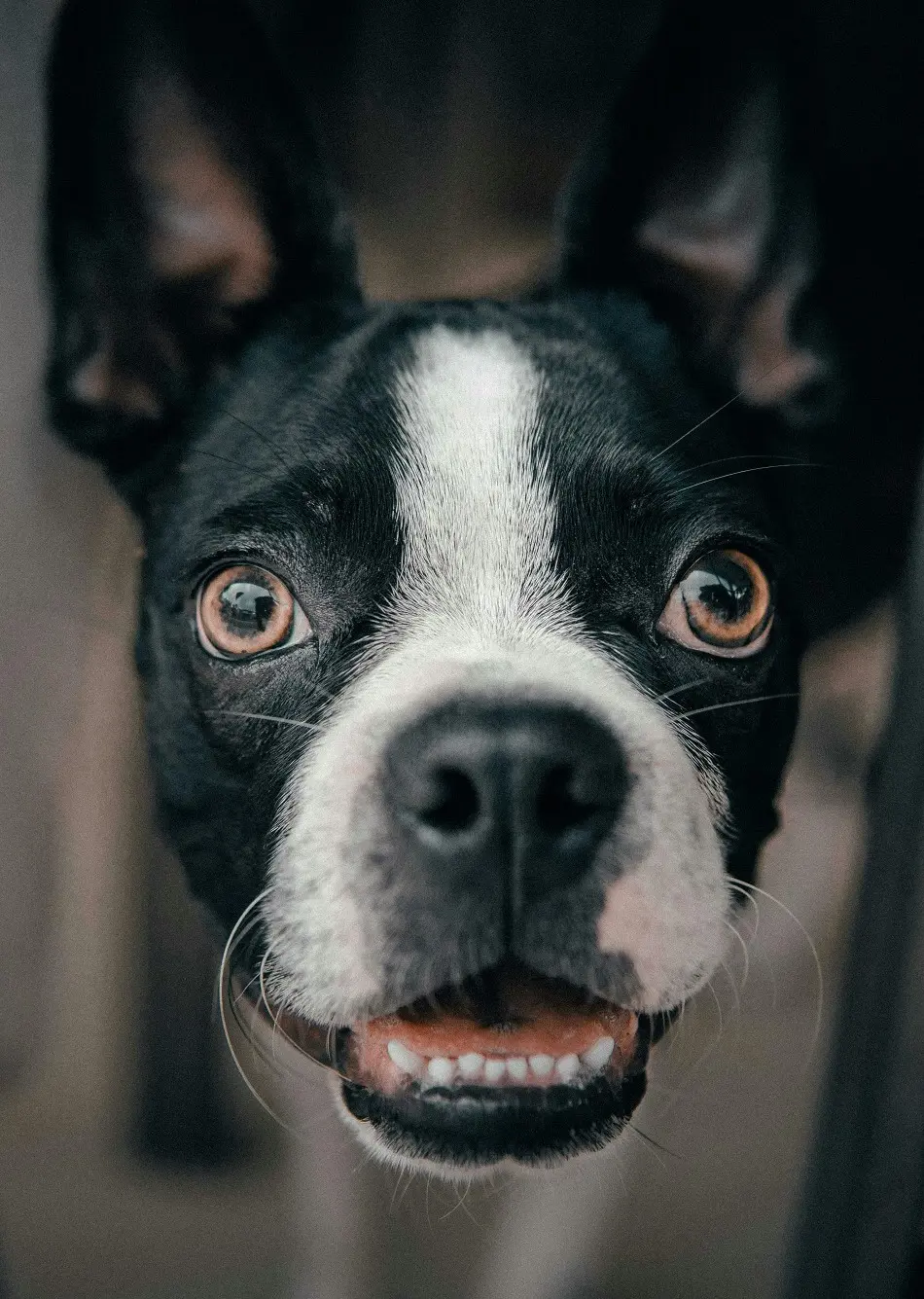
A stuffy nose may affect all species, either humans or dogs, it may ruin the taste of your food and it may make it difficult to breathe. For dogs, whose superpower is their nose, if they suffer, it may have a major impact on their quality of life. As dogs use most of their noses to understand their world and learn more about their surroundings, nasal congestion may irritate them more than humans.
During these problems, dogs may feel some signs such as nasal discharge, nose swelling, heavy breathing, pawing of the face, depression or lethargy, restlessness, loss of appetite, sneezing or reverse sneezing, and snoring. Here are some tips by which you can help your dogs with clogged noses.
1. Steam Therapy
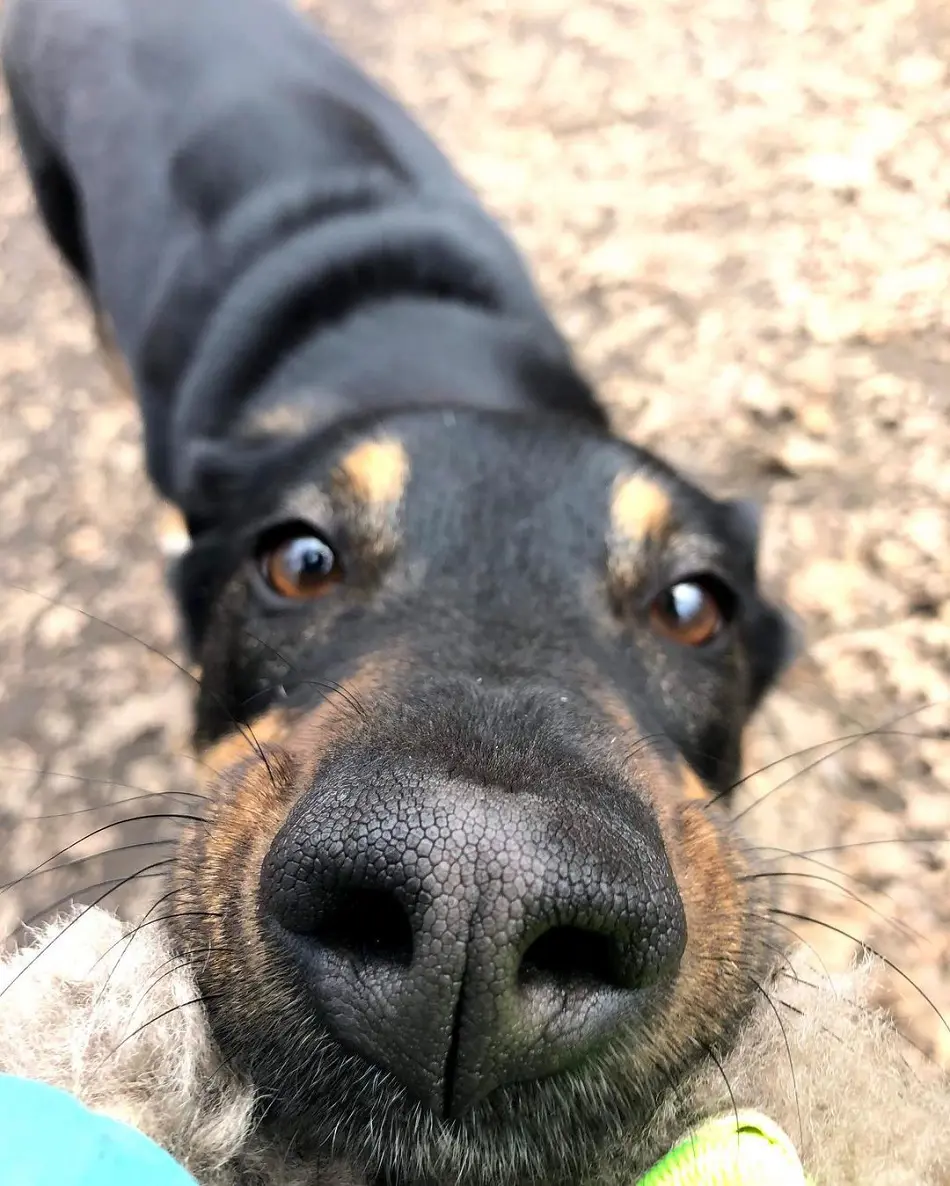
This will help your dog inhale steam, which helps in opening up the nasal passages and you can make this happen by running a very hot shower and then allowing your dog to just sit in the bathroom for about 10-15 minutes. The warm, moist air may help to loosen mucus and relieve congestion. Do this while staying with your dog, observing his comfort zone, and being careful not to have any kind of accident, like slipping on smooth surfaces.
You can even do this with a vaporizer or a humidifier. Place the device close enough to your dog so that he can inhale the steam but not close enough to likely suffer from discomfort or burning. Do this a few times a day to get good results. Please be sure to check with your veterinarian before beginning the steam treatments to make sure they are appropriate for your dog's condition.
2. Saline Nasal Drops
Saline nasal drops do magic in relieving your dog's stuffy nose and it will immediately start to moisten up the passages of his nose and loosen up mucus so that he would be able to breathe easily. You can purchase the saline solution from any pet store; otherwise, you can prepare it at home as well by mixing some salt into distilled water. Use a clean dropper and add a few drops to each nostrils.
Be soft and serene while giving nasal drops to your dog; you will not want him or her under stress and you may even require someone else to assist in holding your dog still in the process. You should always consult your vet before using saline drops in your dog, ruling out any unsafe medicine or inappropriate conditions that might have potential side effects in your dog's case. This works well when used consistently, however, as instructed by your vet.
3. Humidifier

Add moisture to the air with a humidifier in the dog's living area. The humidifier aids in this by keeping the air moist, making your dog's nose moist, and helping with stuffy nose problems therefore won't get irritated if the air is dry. He may have trouble breathing comfortably due to a stuffy nose.
Place the humidifier in the room where your dog spends most of his time and keep it out of reach to avoid spills and injuries. Also, always remember to clean the humidifier regularly to avoid the growth of mold and bacteria, which are very harmful to your and your dog's health. Indeed, humidifiers can turn out to be especially very useful during winter when the air seems to get drier normally.
4. Raised Food and Water Bowls
Raise your dog's food and water bowls to remove pressure from his nasal passages while he eats and drinks. Having the head of a dog almost to the ground worsens congestion since there is increased pressure in the nasal area. This raises the bowls so the position for feeding is easy, allowing better airflow and less discomfort.
You can use specially designed elevated feeders, or you can just set the bowls on a solid surface, such as a low table or even a box that doesn't scoot around. Watch your dog as she eats and drinks, and then make adjustments that will help with this new setup. Quite often, this is an easy adjustment to make all the difference in dog comfort and well-being when they're sporting a stuffy nose.
5. Keeping Them Hydrated
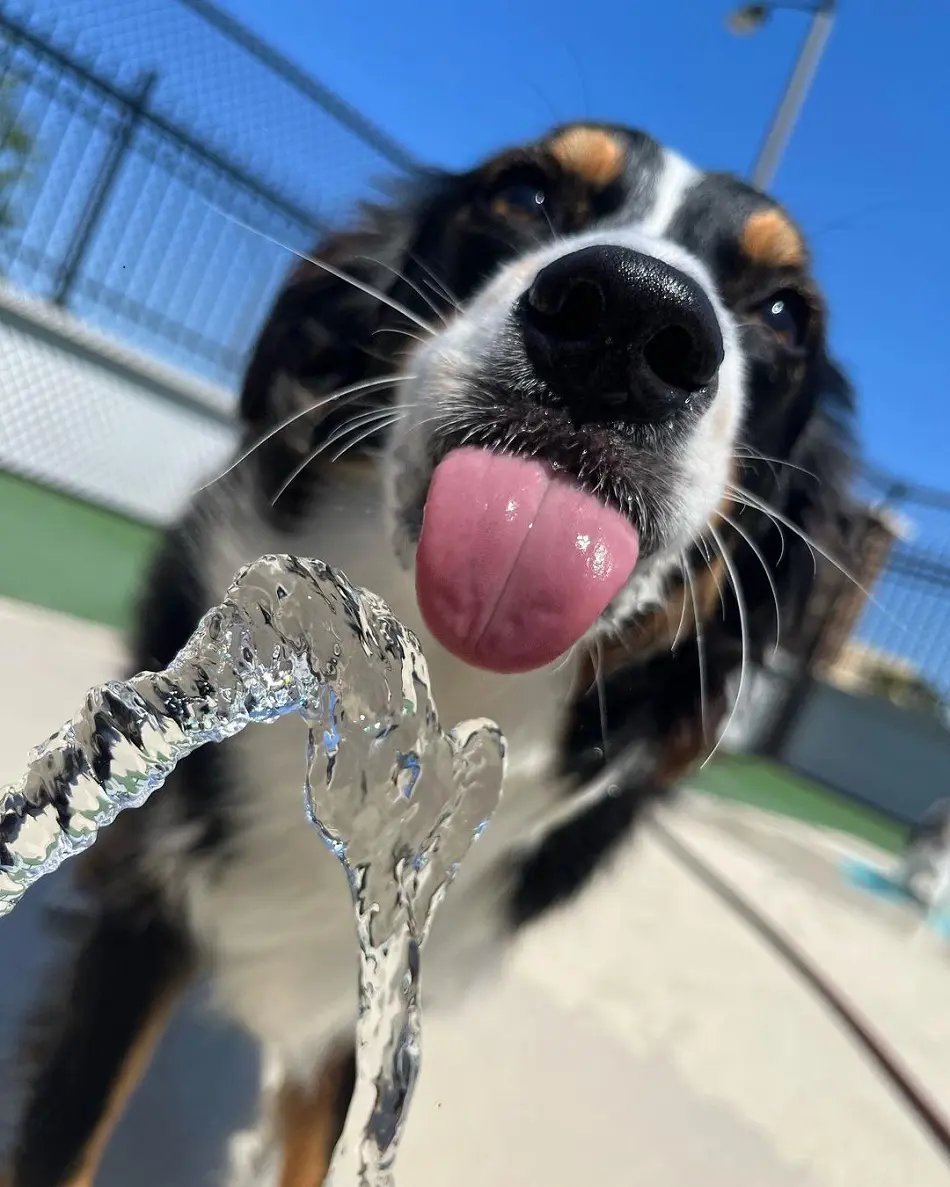
Keeping your dog well-hydrated is one of the most efficient things you can do for your dog while it is experiencing nasal congestion. When properly hydrated, the mucus becomes thin, so it will become easier for your dog to blow its nose and clean the nasal passages. Encourage your pet to drink plenty of water by always having fresh water available and adding a small amount of flavor, like low-sodium chicken broth, into its water to encourage drinking.
Your dog needs to be well-hydrated. Dehydration will only exaggerate congestion and make your dog even more miserable. In some cases, a pet water fountain can motivate an increase in water intake since the movement of the water can be very captivating. Constant hydration assists both in general health and in recovery from respiratory illnesses.
6. Warm Compress
Apply some warmth over your dog's nose and sinus area which will help relax any irritation and allow drainage of the mucus within. Dip a clean cloth in warm water but not to a degree where it is extremely hot. Gently press this against your dog's nose for some minutes, the warmth relieves congestion by relaxing the nasal passages.
Do this several times a day, as necessary, by always keeping the clothes clean to avoid introducing any other irritants or infections. Always make sure to put the cloth on your skin first to check that the temperature is not scalding for your dog. This very simple home remedy can prove to be quite effective at soothing and helping to recover from a stuffy nose.
7. Healthy Diet
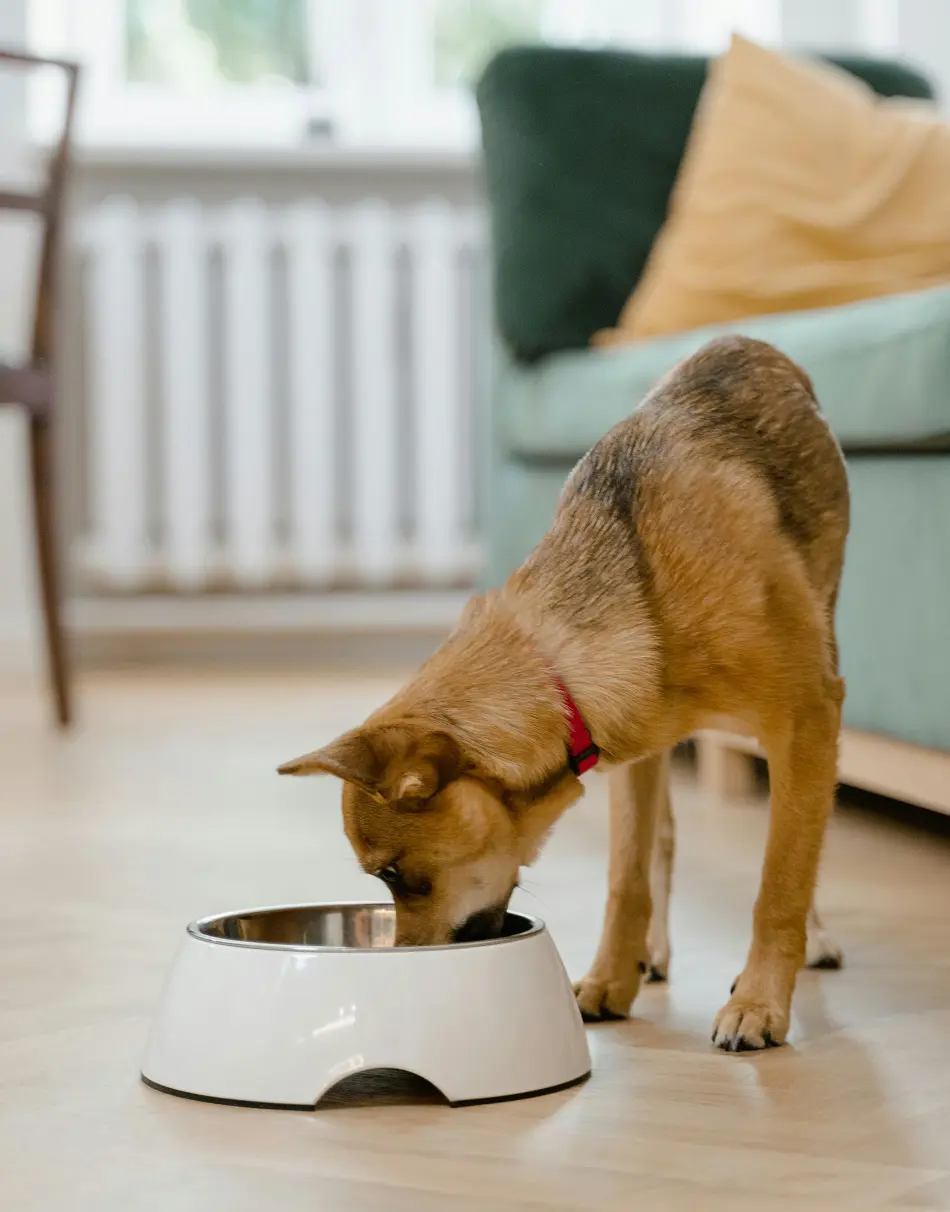
Feeding on good, well-balanced diets will help in having a healthy immune system, precisely one with a better chance of fighting off an infection that causes nasal congestion. A diet that is well supplied with basic nutrients, vitamins, and minerals will keep him healthy and more likely to bounce back fast when sick. Consult with your vet to make sure that your dog is receiving the proper diet for their individual health needs.
Mixing some fresh and healthy foods into their diet will improve their immunity, such as lean meats, vegetables, and omega-3 fatty acids. Never feed them processed foods that have additives; those are not good for their health. These will help in terms of healthy diets not only for the runny nose but also for general health in the long run.
8. Herbal Remedies
Certain herbal remedies can help alleviate nasal congestion in dogs. Herbs such as licorice root and echinacea are known for their innate anti-inflammatory and immune-enhancing properties. However, always consult with your vet about using any herbal treatments to make sure they are safe and appropriate for your dog's condition.
These come in forms like teas, capsules, or tinctures, always provide the recommended dose and watch your dog for any adverse reactions. Herbal remedies may work along with conventional treatments at hand. They can be added to the regime to provide further relief and support for respiratory health in your dog. Regular monitoring and consultation with your vet about the progress will help these natural treatments become effective and safe.
9. Essential Oils
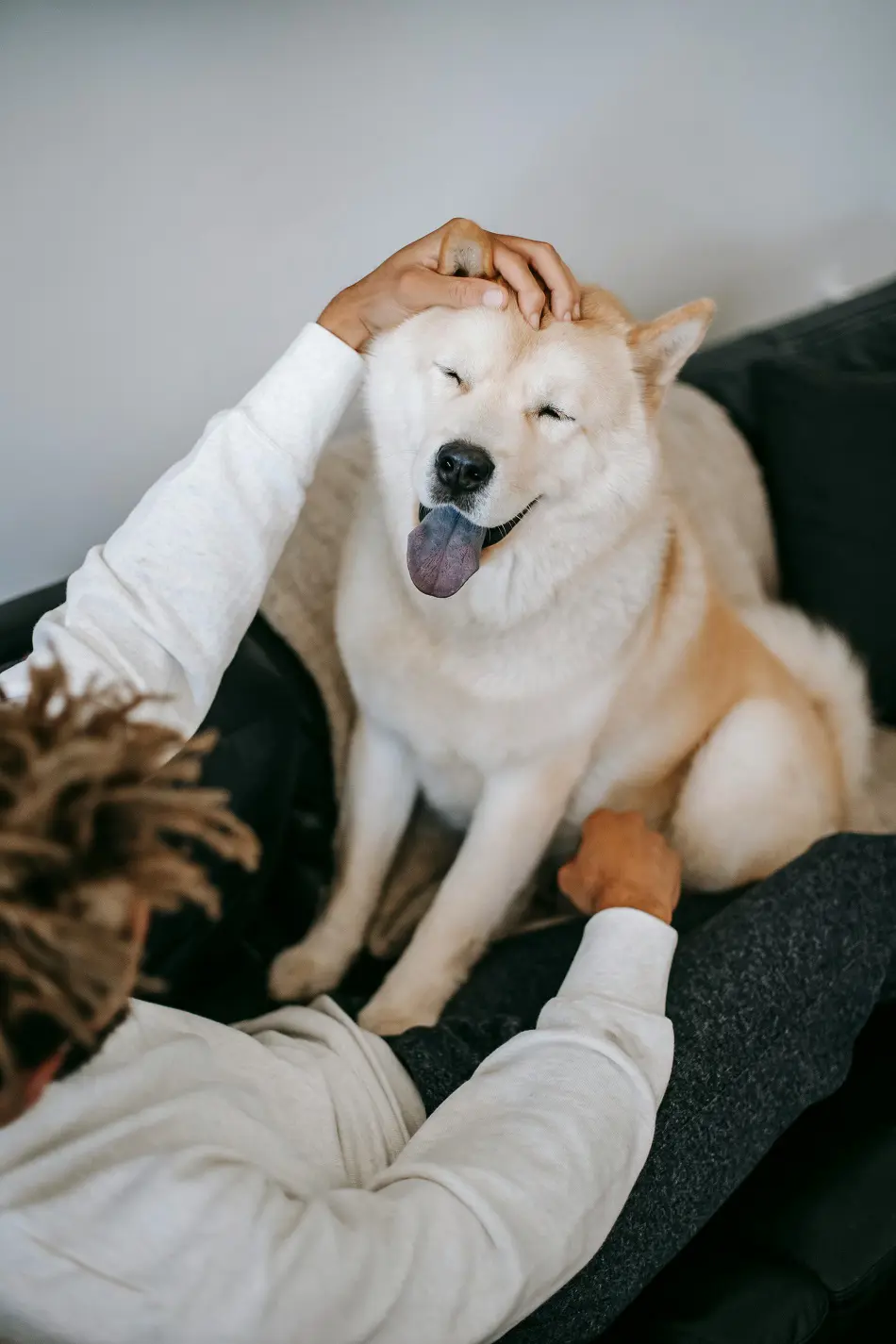
Run the diffuser with some dog-safe essential oils to open up those doggy nasal passages. Most of the time, oils like eucalyptus or lavender have decongestant properties and do seem to make breathing easier. Place the diffuser in a well-ventilated area where your dog spends the most time but make sure he can leave the room if he feels uncomfortable.
Always use essential oils in moderation, if at all; consult with your vet before administration, since some oils may prove harmful to your pet. Make sure the diffuser itself is inaccessible to avoid any mess or possible mishaps. Essential oils can provide a great atmosphere that is very calming, creating an environment that shall help bring relief to nasal passages but should be used with caution and under professional guidance so that your dog is safe from harm.
10. Veterinary-Approved Medication
Consult your vet about using decongestants or antihistamines to bring your dog much-needed relief from his stuffy nose. Many safe drugs for dogs exist to reduce nasal congestion. Your vet will prescribe the right medicine concerning the signs and health conditions of your dog.
Always give the medication as directed by the vet; otherwise, there will be side effects. Never use any over-the-counter human medication on your dog unless told to do so by a veterinarian. This is a very essential care treatment for poor nasal congestion, and vet-approved medications will help the symptoms improve rapidly and provide relief in comfort to your dog.
11. Clean Environment

Environmental cleanliness is also a very integral part of helping your dog heal from the stuffed nose. Allergens such as dust and smoke, among others, are known to worsen nasal congestion and cause other respiratory complications. A clean house will help to reduce these irritants, especially where the dog will mostly be kept.
Non-toxic cleaning products are used that are safe even if your pets ingest them. Cleaning carpets, washing bedding, and frequent cleaning of toys reduce the amount of allergens in the environment. By making sure that your dog does not get exposed to smoke, perfumes, and other air-polluting substances, you also create an environment conducive to easier breathing and healthier lungs.
12. Nasal Aspirator
This nasal aspirator for pets will help you aspirate all mucus from your dog's nostrils and relieve him of this congestion instantly. Devices like these gently suction out the mucus, letting your pet breathe a little more easily. You should, however, be careful while using the aspirator to avoid discomfort or even hurting your dog.
Always consult your vet before reaching for a nasal aspirator to make sure it's appropriate for your dog's condition. Used regularly, as directed by your veterinarian, and it can do much to dramatically alleviate symptoms. If used properly, a nasal aspirator could turn out to be very effective in the management of strong nasal congestion.
13. Regular Exercise

Moderate exercise will keep the dog in good health, which has a strengthened immune system, thus fighting nasal congestion. Physical activity improves blood circulation and breathing, facilitating a better recovery. Keep the exercise pretty non-strenuous; too much exercise, however, might increase the congestion.
Activities such as short walks or gentle plays may suffice as adequate exercise so that the dog remains active without overstressing the respiratory system. Monitor breathing and energy levels during exercise; be sure not to overtire your dog. Regular exercise, in addition to reducing symptoms in the short term, is very useful for a dog's care routine because it will decrease long-term health risks and generally improve health and well-being.
14. Honey
Honey does not allow the throat to get irritated, thereby reducing the cough caused by nasal blockage. Honey is a natural antibacterial agent, and for that very reason, it could help in reducing the irritation of the respiratory tract. Offer your dog some honey, and a teaspoonful, to lick or mix with a small amount of lukewarm water.
Take note that it has to be 100 percent pure honey with no additions, and avoid giving puppies and diabetic dogs honey without consulting your vet. Monitor your dog for any signs of an allergic reaction or digestive issues. Honey is a mild but effective treatment for respiratory discomfort. Soothing and comforting your pet when they're going through a stuffed-up nose, honey is one of the best home remedies.
15. Keep Them Calm

Dogs with nasal obstruction do want a quiet, stress-free environment, stress exaggerates the symptoms and retards the recovery phase. Provide your dog with a quiet and comfortable area to rest where your dog can lie undisturbed. Allow for some gentle bedding and keep the area clear of loud noises and other disturbances.
Spend some time gently petting your dog to comfort him, many anxieties can be lessened by simply keeping them calm in your presence. Try to keep the dog clear of conditions or situations that can increase stress on him. Keeping the dog in a non-stressed and comfortable state will help his general well-being and the recovery rate from the respiratory illness.
16. Monitor Temperature
Keeping the temperature of the pet dog's living area comfortable can certainly help in case of nasal congestion. Extreme temperatures, either way, definitely enhance the symptoms and add to the discomfort. Just keeping the environment neither hot nor cold, but stable, and only moderately tempered, will result in better breathing health.
Provide blankets or utilize a dog-safe heating pad as the weather turns colder to help keep your dog warm. In warmer weather, good ventilation and cool, fresh water should be provided. Large temperature changes are a stress to a dog's breathing, so this consistent temperature range provides a comfortable environment that maximizes recovery and overall health.
17. Follow Up With Your Veterinarian
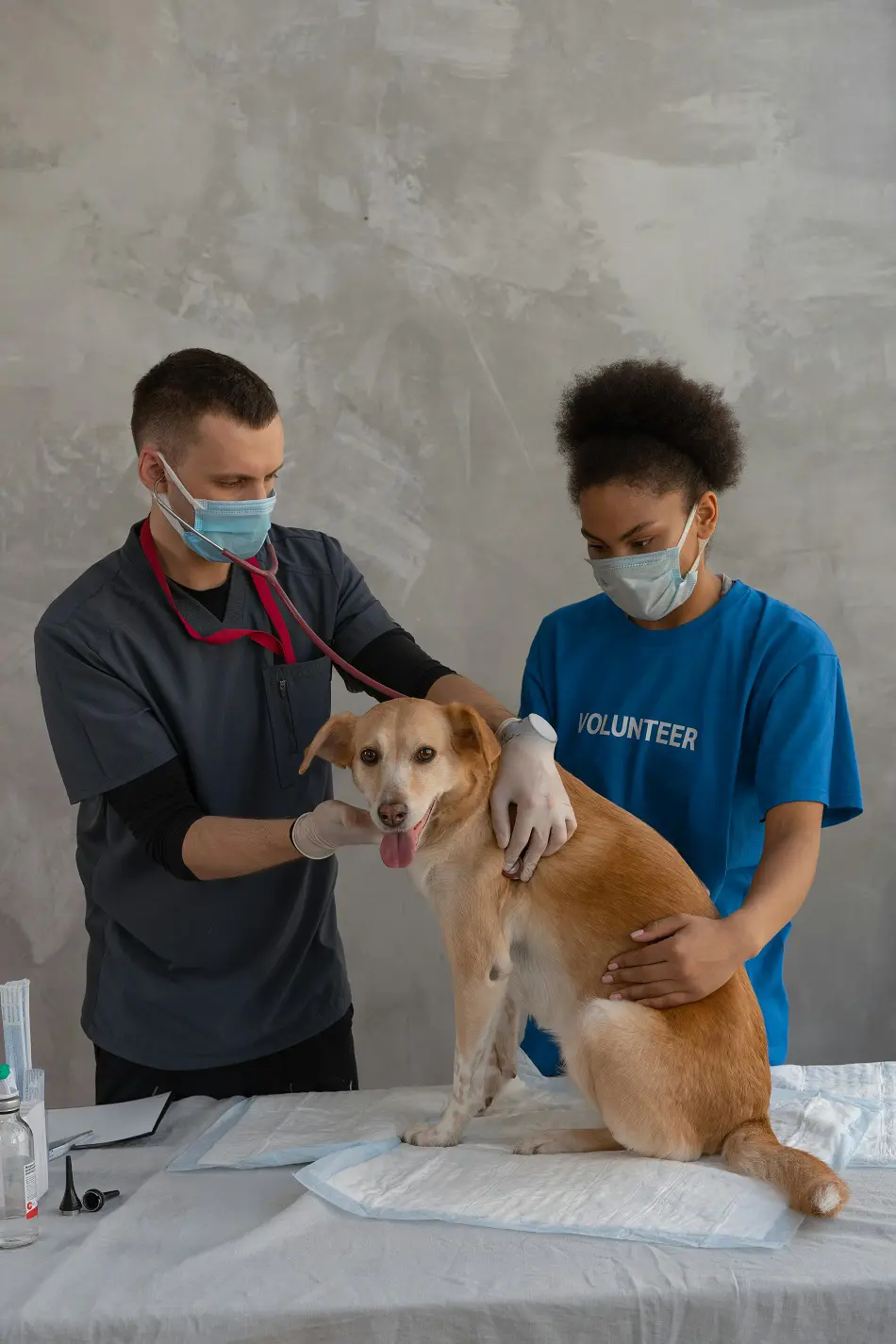
Regular visits to your vet will help in monitoring your dog's health and may quite easily reveal the underlying issues that are causing nasal congestion in your dog. The vet will examine your dog properly, advise on the right treatment, and modify any medication if need be. Respiratory problems are usually detected early enough to allow for prompt and effective intervention.
Follow-up visits will allow you to monitor the progress of your dog with treatment and whether manipulation of the treatment plan is necessary. Update your vet on any changes in the symptoms or other issues so he can monitor the overall care. Veterinary checkups are of great importance to the health of your dog. If complications are noted well in advance, recovery can be quick and long-term wellness bright.
Top Lists


